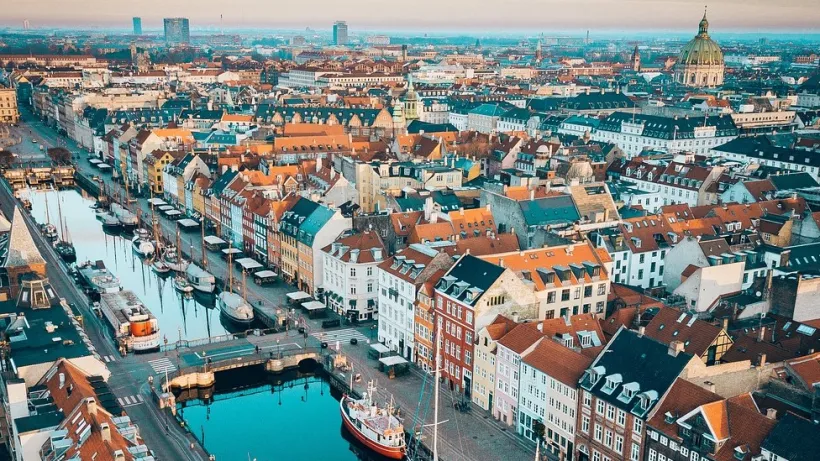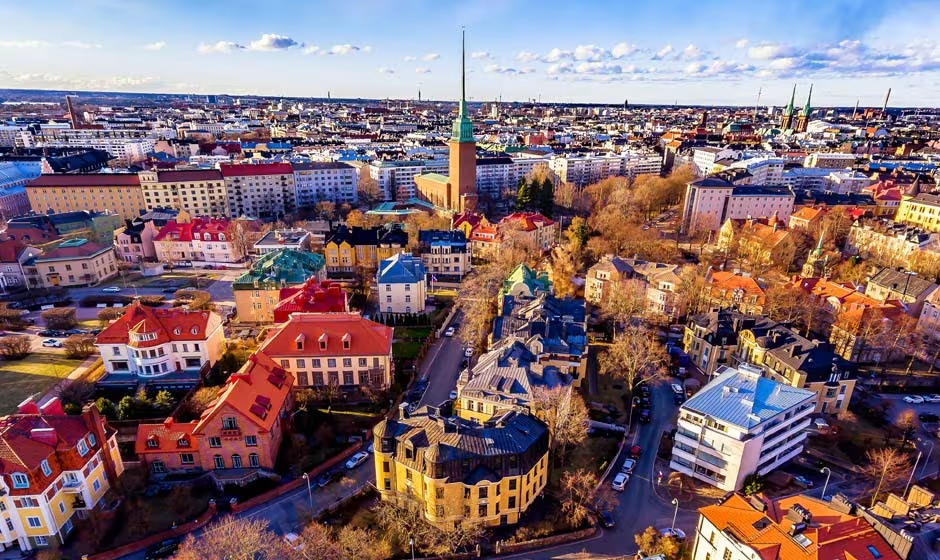Work-life balance is crucial for maintaining mental well-being, fostering creativity, and increasing productivity. In today’s fast-paced world, finding harmony between work commitments and personal life has become a significant priority for employees and employers alike.
As of 2024, many countries are leading the way in creating policies that help their citizens achieve this balance. These top 10 countries, identified in a global study based on statutory annual leave, paid maternity leave, and average working hours, stand out for offering the best environments to support a healthy work-life equilibrium.
Read : World’s Blissful Corners: Unveiling the Top 10 Happiest Nations
Read : Top Ten Countries with the Shortest Working Hours
Let’s dive into the top 10 countries with the best work-life balance in 2024.
1. New Zealand (Index Score: 80.76)

New Zealand tops the list with an impressive index score of 80.76. Known for its laid-back lifestyle and stunning landscapes, the country has cultivated a strong work-life balance culture.
New Zealanders enjoy generous annual leave entitlements and flexible working arrangements, making it easier to disconnect from the hustle of work and reconnect with nature. Employers in New Zealand are also keen on fostering a balanced approach to work, encouraging breaks and time off to avoid burnout.
2. Ireland (Index Score: 77.89)

Ireland comes in second, scoring 77.89 on the work-life balance index. The Irish government has long been committed to implementing family-friendly policies, including substantial parental leave and a minimum of 20 days of annual leave for employees.
Moreover, Ireland’s thriving tech and pharmaceutical sectors have embraced flexible working conditions, allowing employees to better manage their personal time. This balance, combined with the rich cultural heritage of the country, makes Ireland a prime destination for those seeking a balanced work life.
3. Belgium (Index Score: 73.45)

Belgium ties with Denmark for the third position, scoring 73.45 on the index. Belgium has long been recognized for its commitment to labor rights and employee welfare. The country offers a mandatory minimum of four weeks of annual leave and has a legal framework that supports work-from-home options.
Belgium’s workforce also benefits from flexible hours and the option to work reduced hours without significant wage loss. These policies are designed to reduce stress and enhance productivity, giving Belgians a perfect balance between work and personal time.
4. Denmark (Index Score: 73.45)

Denmark shares the third spot with Belgium, also scoring 73.45. The Danish work culture is renowned for its focus on flexibility and personal time. Denmark’s government mandates five weeks of paid vacation, ensuring workers have ample time to relax and unwind.
Danes typically work fewer hours per week compared to other European nations, and the concept of “hygge”—finding joy in life’s simple pleasures—is deeply embedded in their culture. This unique approach to work and relaxation has made Denmark one of the happiest countries in the world.
5. Canada (Index Score: 72.75)

Canada ranks fifth, with a score of 72.75. Known for its high quality of life and progressive labor laws, Canada provides employees with a minimum of two weeks of paid vacation and extended parental leave options.
Additionally, many Canadian companies have adopted flexible work schedules, allowing employees to maintain a healthy balance between their professional and personal lives. Canada’s vast natural beauty—from the Rocky Mountains to the Atlantic coastline—offers residents numerous opportunities to recharge during their time off.
6. Germany (Index Score: 71.84)

Germany, with a score of 71.84, is known for its strong labor protections and robust social welfare systems. The country enforces a minimum of four weeks of annual leave, and the 35-hour workweek is common in certain industries.
Germany’s “Kurzarbeit” system, where employees work reduced hours during economic downturns without losing significant income, has proven beneficial for work-life balance. In addition, German companies are increasingly embracing remote work and flexible schedules to help employees juggle work responsibilities and personal life more effectively.
7. Finland (Index Score: 71.55)

Finland ranks seventh with an index score of 71.55. The Finnish approach to work-life balance is deeply rooted in the country’s commitment to social equality and well-being. Employees in Finland enjoy up to 30 days of annual leave, and there is a strong emphasis on parental leave and reduced working hours for parents.
Finnish employers encourage a culture of trust and autonomy, allowing workers to set their schedules and prioritize personal time. Additionally, the country’s strong welfare system ensures that citizens feel secure, even during periods of reduced work.
8. Australia (Index Score: 71.35)

Australia scores 71.35, placing it in eighth position. With its outdoor-oriented culture and strong labor regulations, Australia has always promoted a healthy work-life balance. Australians enjoy a minimum of four weeks of paid leave, and many workplaces offer flexible arrangements, including remote work options.
The country’s healthcare system and social benefits further support citizens in achieving a balanced lifestyle. Australia’s vibrant cities, stunning beaches, and warm climate make it easy for residents to unwind and enjoy leisure time after work.
9. Norway (Index Score: 70.85)

Norway, scoring 70.85, is renowned for its generous welfare policies and high standard of living. The country guarantees five weeks of paid vacation, and many companies offer flexible working hours to accommodate personal commitments.
In Norway, a strong emphasis is placed on family life and the importance of spending time outdoors. The government’s commitment to gender equality also ensures that both men and women can take parental leave, further promoting a healthy work-life balance.
10. Spain (Index Score: 70.60)

Spain rounds out the top ten with a score of 70.60. Known for its siestas and laid-back culture, Spain has long been associated with a more relaxed approach to work. Spanish workers are entitled to a minimum of 30 calendar days of paid leave each year.
In addition to this, many regions in Spain observe long midday breaks, allowing workers to rest and rejuvenate before continuing their workday. Spain’s emphasis on leisure, combined with a rich cultural heritage, makes it a country where work and life are well-balanced.
India’s Work-Life Balance Ranking in 2024
Although India did not make it to the top 30 in the work-life balance index, it ranked 48th globally with an index score of 38.83. While India has made strides in labor reforms and employee welfare, the country still faces challenges in balancing long working hours, particularly in sectors like IT and manufacturing.
However, many companies are increasingly offering flexible work arrangements and promoting mental health awareness, indicating a positive shift towards a better work-life balance in the future.
let’s enjoy few years on earth with peace and happiness….✍🏼🙏

